Personal injury damages are sought when you suffer an accident or harm due to the negligent or intentional acts of another person. In this article, you will understand the what are types of damages in law, the difference between different types of personal injury damages, and what are personal damages. We will also discuss damage compensation with special damages examples, special damages personal injury, and physical damages that occur in personal injury cases. Are you seeking compensation for a personal injury? Learn more about the types of damages available and how to pursue your case. Get in touch with a lawyer today to discuss your options.
What Are Personal Injury Damages?
Personal injury damages are monetary compensation given to victims of physical or emotional injury due to another person’s negligent or intentional actions. There are different types of damages that can be awarded to the injured party, depending on the circumstances and facts of the case. However, generally, types of damages in personal injury cases include economic as well as non-economic damages for personal injuries. All kinds of financial losses are covered under economic damages, whereas non-economic damages cover the mental, emotional, and psychological aspects of the injury to the victim. Different states have different laws on what damages can be sought against an illegal, negligent, or intentional action of the defendant. Seeking professional legal advice is instrumental in determining what type of personal injury damage you can pursue and which compensation damages will suit your case the best, as there are many categories of damages for personal injury cases.
Types of Damages Available in Personal Injury Cases
In personal injury cases, there are several types of damages that may be available to compensate the injured party for their losses.
- Economic: Compensation for economic damages includes the reimbursement of expenses incurred by the injured party, such as medical bills, lost wages, and other financial losses resulting from the injury. The purpose of these damages is to restore the injured party to their financial position prior to the injury.
- Non-Economic: The non-economic damages are intangible and non-monetary losses suffered by the injured party. They include mental, emotional, and psychological suffering faced by the victim in the form of stress, pain, mental torture, agony, loss of enjoyment of life, etc.
- Punitive Damages: These damages are a form of punishment i.e. fine on the guilty party to encourage them to observe the law in the future and deter them from engaging in similar behavior again. Punitive damages are awarded to ensure rule of law is upheld, and the public is encouraged to observe the law.
- Property Damages: Any damage to the property of the plaintiff is covered under the property damages. It may depend on the circumstances of the case and the degree of responsibility of the defendant to have caused such damage to the plaintiff’s property.
Seeking the advice of a legal professional can be crucial in determining what types of damages may be available and how best to pursue them.
Calculating the Value of Damages in a Personal Injury Case
Several factors are considered when calculating the value of damages in a personal injury case. These factors may depend on the nature of the injury, the extent of its impact on the injured party to perform their day-to-day work, financial losses, the psychological effect of injury, etc. Additionally, mental distress, the ability to enjoy life, and the loss of consortium are also some other factors that are determined when deciding how much compensation the injured party is entitled to get. The quantum of compensation is determined after the question of liability is cleared. Based on the circumstances of the case, the injured party can get compensation for:
- Medical expenses such as treatment, doctor’s fees, consultation charges, and bills for medicines.
- Wages that are lost as a result of injury. This may include loss of wages in the past, present, and future. Wage compensation is also determined while considering whether the injury has caused a temporary or permanent disability.
- Psychological damages for pain, suffering, mental distress, and loss of the ability to enjoy life are also taken into consideration. If the case involves permanent disability or disfigurement, the damages may also include compensation for the diminished quality of life. Expert testimony is necessary for the evaluation of the quantum of damages.
How to claim compensation for a personal injury?
If you want compensation for a personal injury that resulted from the intentional or negligent act of another person, there are some steps and procedures that need to be followed:
- The first thing to do is to seek medical attention. Make sure to record receipts of all medical expenses you incur while obtaining medical help.
- The second step is to consult an injury lawyer who can help you determine your next steps. Insurance companies offer a compensation offer to settle the matter with you. It is always good to discuss with an injury lawyer which option is more favorable to your case. Don’t settle for less with the insurance company if you have a better chance of winning fair compensation in a lawsuit. Your injury lawyer will negotiate the terms of the compensation offer with the insurance company on your behalf. If the negotiations fail, you can file an injury suit.
- The last step is to gather necessary evidence i.e, witness statements, police reports, video, or pictures of the accident, etc. Your injury lawyer can help you collect these documents and analyze which have strong evidentiary value in your case. They also help you determine which legal damages types you should pursue in your lawsuit.
Conclusion
To summarize, damages for personal injury refer to the various types of losses – financial, physical, and emotional – that a victim may experience due to someone else’s intentional or negligent behavior. The two main categories of damages are economic and non-economic, but punitive and property damages may also be granted in specific situations. It is essential to consult with an experienced injury lawyer to determine the damages that apply to your case, pursue the most appropriate compensation, and calculate the damages’ worth you may be eligible to receive. If you have suffered a personal injury, an experienced personal injury attorney can assist you in navigating the legal system and advocating for your rightful compensation.
- Key Facts About Missouri’s No Pay No Play Law - 28th May 2025
- Understanding Taxes on Personal Injury Settlements - 23rd May 2025
- Navigating Your Rights After a Car Crash While Pregnant - 21st May 2025


